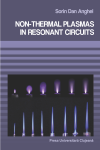| REZUMAT: |
Over the past decades, the interest in atmospheric pressure plasmas (APP) has increased due to their numerous applications: spectral sources for atomic emission and fluorescence spectroscopy, gas treatments and material processing (deposition of thin films, etching, ion implantation, surface activation of polymers, plasma polymerization, ashing, oxidation or surface hardening), ozone generation, environmental and biomedical applications and particle sources. Atmospheric pressure plasmas overcome the disadvantages of vacuum operation but present difficulty of their sustaining because of the higher electric voltages needed for gas breakdown. In addition, the difficulties imposed by the necessity of adapting the output impedance of the waveform generator to the plasma impedance must be passed. Commercial plasma generators solve these problems by interconnecting a matching network between the waveform generator and the plasma torch. Our idea was to solve both problems by generating the plasma as intrinsic part of a LRC series resonant circuit. The behavior of the resonant circuit represents the development basis of some APP generators. Plasmas with powers ranging from hundreds of mW to several kW were generated at frequencies ranging from hundreds of kHz to 27.12 MHz. |
|
